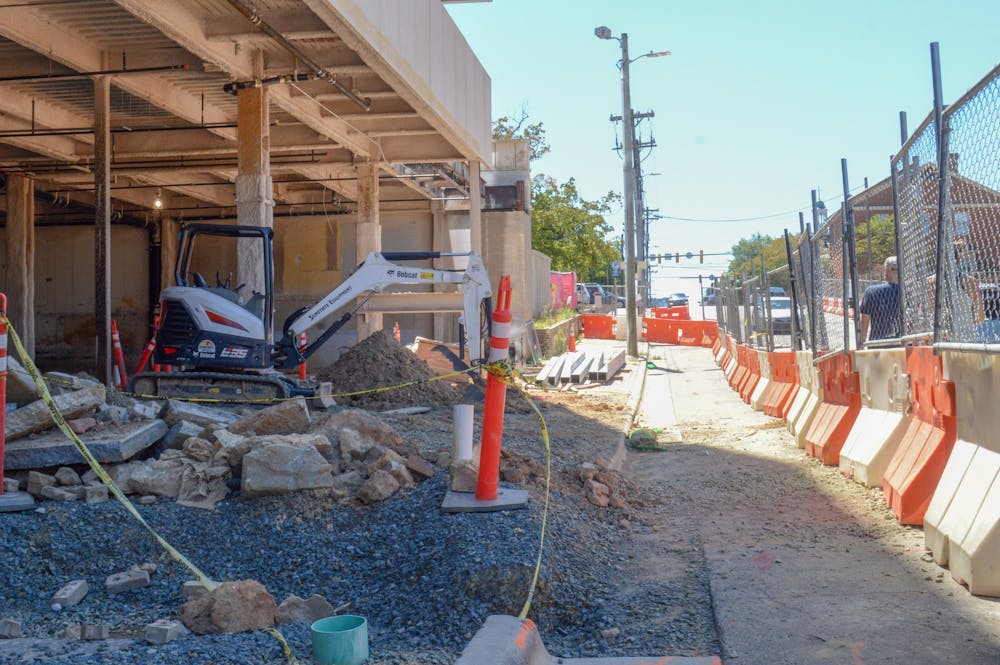The East Rosemary Street Redevelopment Project, a joint venture between the Town of Chapel Hill and Grubb Properties that aims to incentivize business growth and research development in downtown Chapel Hill, is scheduled to be completed by next summer.
Construction for the project started in September 2021, and it will feature a parking deck and office building with wet labs — research laboratory space for handling hazardous liquid chemicals.
Dwight Bassett, the economic development officer for the Town, said construction on the office buildings will be finalized by the end of the year and should be operational by next summer.
“The project will provide economic development and opportunities for Chapel Hill, creating new space for research and businesses to locate downtown, and for partnerships with the university and the business community that's currently lacking,” said Michael Stevenson, principal at Perkins Eastman, the architecture firm involved with the project.
According to the project's webpage, the new parking deck will be located at 137 E. Rosemary St. Although the structure consolidated preexisting parking areas, Bassett said the garage will include 1,100 parking spaces, adding a net total of 250 parking spots to downtown Chapel Hill.
Bassett added that the University will lease 100 of the spaces, supporting the Undergraduate Admissions and Visitors Center offices that may move to Porthole Alley next to Carolina Coffee Shop pending further redevelopment discussion.
The land at 137 E. Rosemary St. was exchanged to the Town by Grubb Properties for the Wallace Parking Deck. As part of the deal, Grubb Properties will renovate the two conjoined buildings at 136 E. Rosemary St. and 137 E. Franklin St. to house offices and wet lab space.
Bassett said the lab space would help attract more entrepreneurs and allow Chapel Hill to keep research occurring in and around the UNC community.
“There's over a billion dollars of research that happens on UNC's campus,” he said. “And when that research goes into companies, the vast majority of it either goes to Durham or (Research Triangle Park), because we have no wet lab space.”



